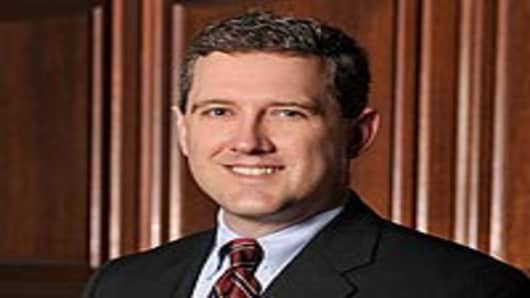The Federal Reserve should take a break from its current easing program to see if the improving economy can function on its own, St. Louis Fed President James Bullard told CNBC.
With the central bank about halfway through its purchases of $600 billion in Treasurys, Bullard said the Fed should consider a return to more normalized monetary policy.
"Policy is a continuous process," he said. "I would see it as possibly finishing the program a little bit shy of where we intended initially then go on pause for a while, let more information come in on the economy, see how things develop.
"If things continue to go as well as I think they will in 2011 then we can start the process of getting the balance sheet back to normal and getting interest rates up there eventually."
The Fed launched the second leg in its purchasing of Treasurys in November as part of a program called quantitative easing—commonly referred to in this case as QE 2.
Since then, the stock market has spiked, unemployment has edged lower and a series of economic reports have shown improvements in some areas, though housing continues to languish.
But the Fed has come under criticism for stoking stock market gains while ignoring inflation risks. Those risks have come to the forefront even more since the violence in the Middle East, much of which has come during protests against higher food prices which Fed critics say it has generated by devaluing the US dollar. Most commodities are denominated in dollars, so a cheaper greenback usually makes energy and food prices more expensive.
Bullard said he does not "draw a straight line" between Fed policies and global food prices, though he said he understands the criticism and believes the central bank ought to re-examine where it is going with QE2.
"For some reason my colleagues are enamored with putting big numbers out there and sticking with big numbers and I don't like that," he said. "So I've been working, working, working to get people off that."
Nevertheless, he considers the easing program a success for the improvements it has generated in the economy.
"The economy's definitely doing better than it was last summer and fall," he said. "So I'm encouraged by that. I think we're in good shape for 2011."



